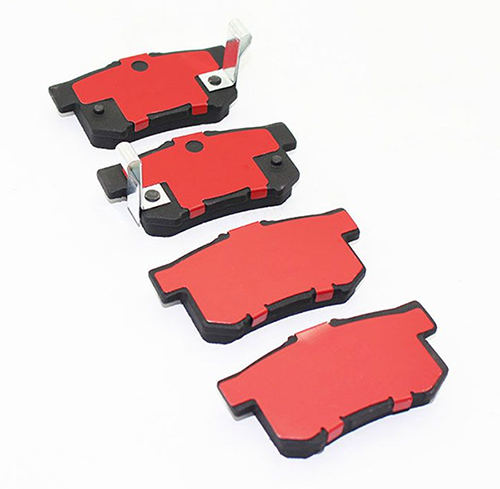An Introduction to OEM Brake Pads
When it comes to maintaining your vehicle's safety and performance, one of the most important components to pay attention to is your brakes. Your brakes are responsible for bringing your car to a stop, and the quality of your brake pads can make a significant difference in how well they perform. One option for replacement brake pads is OEM brake pads. In this article, we'll explain what OEM brake pads are, how they differ from other types of brake pads, and why they matter.

What Are OEM Brake Pads?
OEM stands for "original equipment manufacturer," which means that OEM brake pads are the brake pads that were installed on your vehicle when it was originally built. These brake pads are designed specifically for your vehicle's make and model, and they meet the manufacturer's specifications for performance and safety.
Auto brake pads Wholesale are typically sold through authorized dealerships or repair shops, and they are often more expensive than aftermarket brake pads. However, they are often considered to be a higher quality product because they are made by the same company that built your vehicle.
How Do OEM Brake Pads Differ from Other Types of Brake Pads?
There are two other main types of brake pads: aftermarket brake pads and performance brake pads. Aftermarket brake pads are made by third-party manufacturers and are designed to fit a wide range of vehicles. Performance brake pads are designed for drivers who want better braking performance, such as for racing or high-performance driving.
One of the main differences between OEM brake pads and aftermarket brake pads is the level of quality control. OEM brake pads are made to the exact specifications of the vehicle manufacturer, which means that they are designed to work perfectly with your vehicle's braking system. Aftermarket brake pads, on the other hand, may have slight differences in size, shape, or composition that can affect their performance.
Performance brake pads, meanwhile, are designed for specific driving conditions and may offer better stopping power than OEM brake pads. However, they may also wear out more quickly or produce more dust than OEM brake pads.
Why Do OEM Brake Pads Matter?
There are several reasons why OEM brake pads are important:
Safety: Your brakes are responsible for keeping you and your passengers safe, and OEM brake pads are designed to work seamlessly with your vehicle's braking system to provide reliable stopping power. Using aftermarket brake pads that don't meet the manufacturer's specifications can compromise your vehicle's safety.
Performance: OEM brake pads are designed to provide consistent braking performance and reduce noise and vibration. Aftermarket brake pads may not provide the same level of performance or may produce more noise and vibration.
Warranty: If your vehicle is still under warranty, using Ceramic brake pads may be required to maintain the warranty. Using aftermarket brake pads can void your warranty, so it's important to check with your vehicle's manufacturer before making any changes.
Resale value: If you plan to sell your vehicle in the future, using OEM brake pads can help maintain its value. Prospective buyers may be more willing to pay a premium for a vehicle that has been well-maintained with OEM parts.
In conclusion, OEM brake pads are an important component of your vehicle's braking system. They are designed specifically for your vehicle's make and model, and they meet the manufacturer's specifications for performance and safety. While they may be more expensive than aftermarket brake pads, they offer several benefits, including better safety, performance, and resale value. If you're in need of replacement brake pads, consider investing in OEM brake pads for the best results. For more information, please contact us.
评论
发表评论